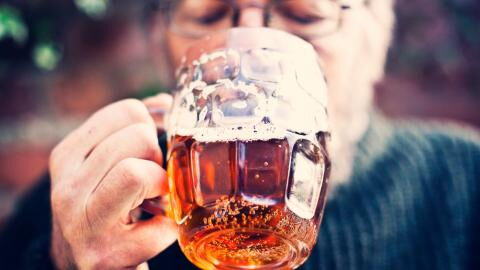After much debate circulated over whether you should be drinking pre- or post-COVID jabs when they first came out, the question is resurfacing now that booster shots are being mandated to fight off Omicron.
Discover our latest podcast
Excess alcohol makes you more prone to infections
Though drinking in moderation or at very low levels is perhaps your best bet, some medical experts still believe it is better to avoid alcohol altogether. Dr Fiona Sim, chair of the independent medical advisory panel for alcohol charity Drinkaware, explains that:
We advise that you don't drink any alcohol... at least two weeks after you've been vaccinated, to try to ensure your immune system is at its best to respond to the vaccine and protect you.
As your immune system goes through a series of changes upon receiving jabs, boosters or otherwise, consuming alcohol could potentially alter the way your immune system operates. It is also common knowledge in the medical field that those who consume rather large quantities of alcohol or those who struggle with alcohol addiction are more prone to infections. Paul Klenerman from the University of Oxford said:
There’s no doubt that chronic excess alcohol has a significant impact on many aspects of immunity. What isn’t clear is whether just a small amount would have any significant effect in [real-life settings].
And added:
So it is plausible and you could simply be very cautious and say avoid it. Different countries might end up giving different guidance.
No concrete evidence has ever been found
However, despite trepidation from certain members of the medical community, small to moderate amounts of alcohol have not been linked to any alteration in the efficacy of the third jab. In fact, the AstraZeneca vaccine itself contains trace amounts of alcohol in its ingredient list without necessarily triggering any negative side effects.















